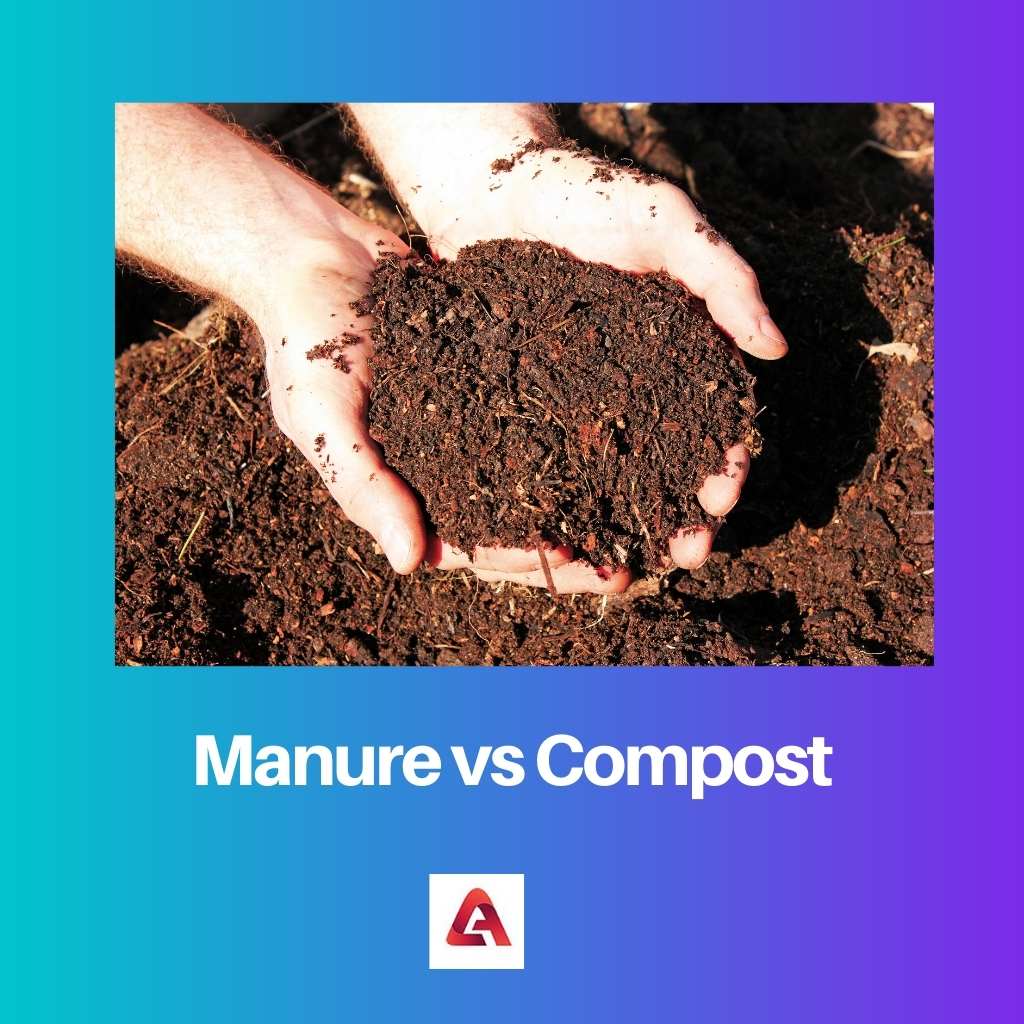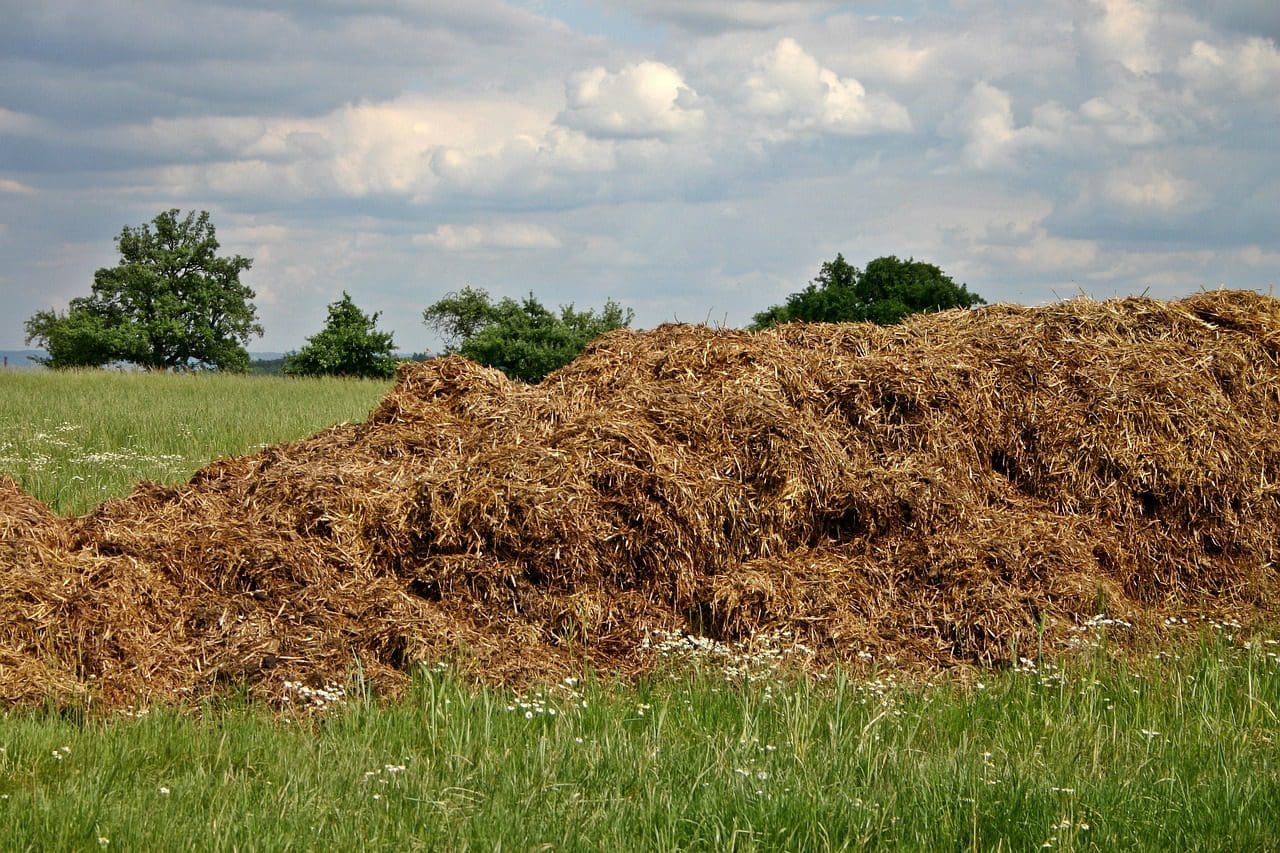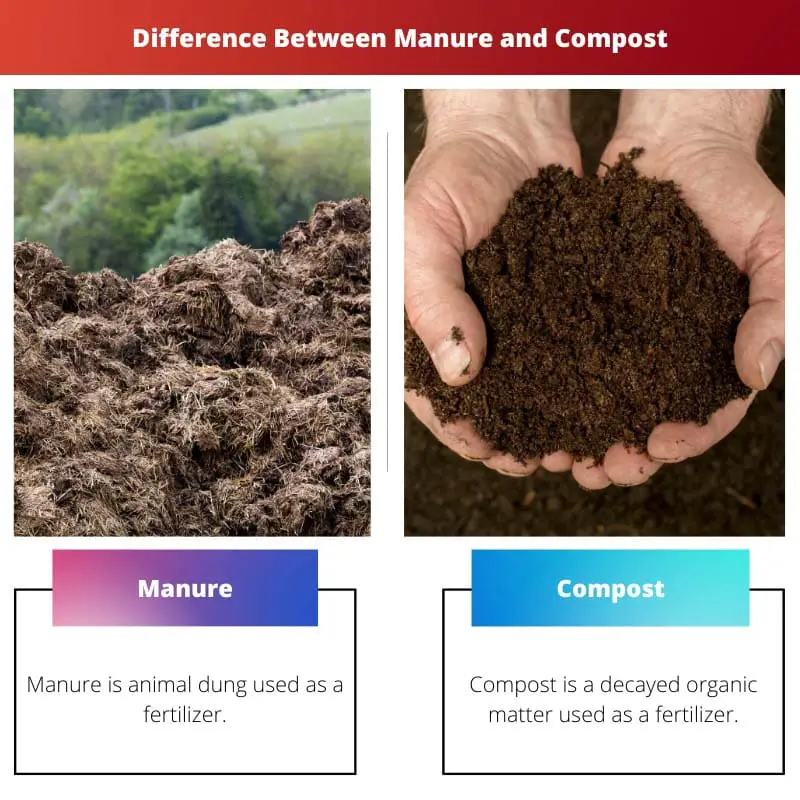A lush green garden is what we aspire to nowadays. The beauty lies in nature.
And for maintaining it, we need some quality fertilizers. Manure and Compost are two of such worthy organic fertilizers.
They provide similar things but are different, in some ways. Both of them are productive soil amendments.
Key Takeaways
- Manure is an organic fertilizer made from animal waste, while compost is a nutrient-rich soil amendment produced by decomposing various organic materials.
- Compost improves soil structure, water retention, and aeration, whereas manure primarily provides essential nutrients for plant growth.
- Manure can contain pathogens and weed seeds, while composting eliminates these issues through the heat generated during decomposition.
Manure vs Compost
Manure is the organic matter produced from the excrement of animals, such as cows, horses, pigs, etc. It is rich in nutrients, such as nitrogen, and phosphorus, required for plant growth. Compost, is made from decomposed organic matter, such as leaves, grass clippings, and kitchen scraps.

Manure is an organic fertilizer used to increase the yielding and quality of soil with the aim that, aids in the growth of plants. It is used as a fertilizer in agriculture farms.
It improves the structure of the soil. Manure is highly rich in nitrogen, potassium, phosphorus and some fibres.
Compost is a mixture of organic waste materials used for the fertilization of soil and its improvement. Anything from the house like vegetable peels, fruit peels, napkins, eggshells, cartons are used to create compost.
Compost is rich in plant nutrients, nitrogen, phosphorus and potassium. Carbon is an abundant element.
Comparison Table
| Parameters of Comparison | Manure | Compost |
|---|---|---|
| Definition | Manure is animal dung used as a fertilizer. | Compost is a decayed organic matter used as a fertilizer. |
| Composition | Manure comprises animal waste like urine, faeces, runoff, spilt feed and bedding of livestock. | Compost comprises plant waste, vegetable and fruit peels, newspapers, napkins, coffee grounds, eggshells and many more things. |
| Application | Manure is spread directly into the soil surface or we can inject. | Compost is achieved by soil amendment by adding humus to the soil. |
| Odour | Manure smells very foul because it includes animal waste. | Compost does not possess any such smell. |
| pH | Manure is basics, with a pH of 8-12. | Compost is close to neutral as its pH is between 6-8. |
What is Manure?
Manure is so good for the soil. It can help in growing a considerable and fresh amount of plants.
There are lots of benefits of using manure.
It enlarges the organic component of the soil. Aids in water retention quality.
It also improves the drainage quality of the soil. Takes care of the texture of the soil and its aeration.
The availability of manure that is readily available that’s why it is highly demanding among farmers.
Manure is very inexpensive. It equips the right amount of nutrients to the soil like nitrogen, potassium, phosphorus etc.
Manure processing is vital before removing E.coli and other microbes that are, unsafe for the soil. Heat is given in this process to eliminate harmful materials.
They are healthy for the long run without causing any pollution at all.
Manure comes in various types. Some of the varieties are green manure, farmyard manure, compost manure.
Different types of manure accommodate approx 26% solid. The best sources of manures are chicken manure, horse manure, cow manure, sheep and goat manure etc.
All of them are ideal sources of manure. One should not use the manure of pigs, dogs and cats because they lack nutrients and matter.

What is Compost?
Compost is an exceptionally fine soil conditioner. It offers a great number of micronutrients.
It is made up of decomposed organic matter. It is great for water holding capacity.
And reduce soil erosion. Maintain the pH, of the soil.
Helps in reducing soil compaction and boosts the binding quality of the soil. It also aids in making the soil resistant to diseases.
It increases the water and air penetration of the soil.
Compost increases the overall health of the soil. Making compost is also not a big deal.
People can make compost easily at their home by using the waste from the kitchen and stuff. Composting basics include browns, greens and water.
All the 3 items should be in equal quantity. A fresh compost doesn’t smell at all.
Compost is a natural alternative to all chemical fertilizers. The best part about the compost is that you can make your own with all you have in the home.
It also does not need any animal waste. A few organic matters such as dairy products, fats and oils, fish, bones, and infected plants are not suitable for creating compost.
Compost enhances the production of helpful bacteria and fungi that break down organic matter resulting in humus.

Main Differences Between Manure and Compost
- Manure is comparatively heavy that requires a machine for the best result. On the other hand, compost is lighter and could effortlessly disperse into the soil.
- Manure is not simply available. Compost is very easy to make at home too.
- Manure cannot break down household materials like papers. On the other hand, compost contains plants that feed bacteria in a composting bin which is why it consumes large varieties.
- Manure always smells bad near a poultry farm. Furthermore, compost does not produce any such smell.
- Making a manure pile requires an area where animals do not venture away into it. On the other hand, a compost pile requires a bin or area it decomposes.
- Manure is comparatively less expensive than compost.

- https://acsess.onlinelibrary.wiley.com/doi/abs/10.2134/jeq1997.00472425002600010027x
- https://digitalcommons.unl.edu/agronomyfacpub/16/
